Post Contact Interaction Officer Surveys
Strategies for Enhancing Police Accountability and Performance
- Collect data and measure procedural justice.
- Use surveys that generate feedback and actionable insights.
- Track individual officer performance.
- Satisfy CALEA accreditation requirements.
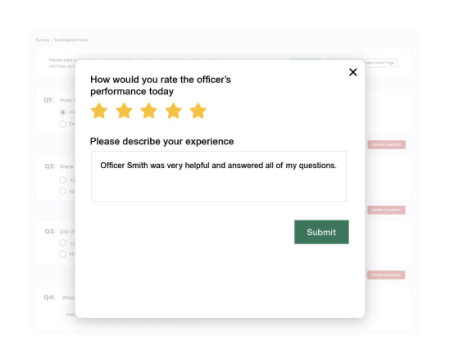
Build trust with community members
- Identify concerning behaviors and intervene at the earliest possible stage.
- See how every officer is interacting with the public.
- Identify certain behaviors and get officers the right training.
- Reduce training costs by leverage data.
Find out what citizens really think
- Build dynamic surveys tailored to your department's needs with ease or use our thoughtfully prepared survey instantly.
- Leveraging data and having insightful conversations can provide valuable insights for improvement and success.
- Engaging with the community and gathering feedback can help guide efforts and drive success.
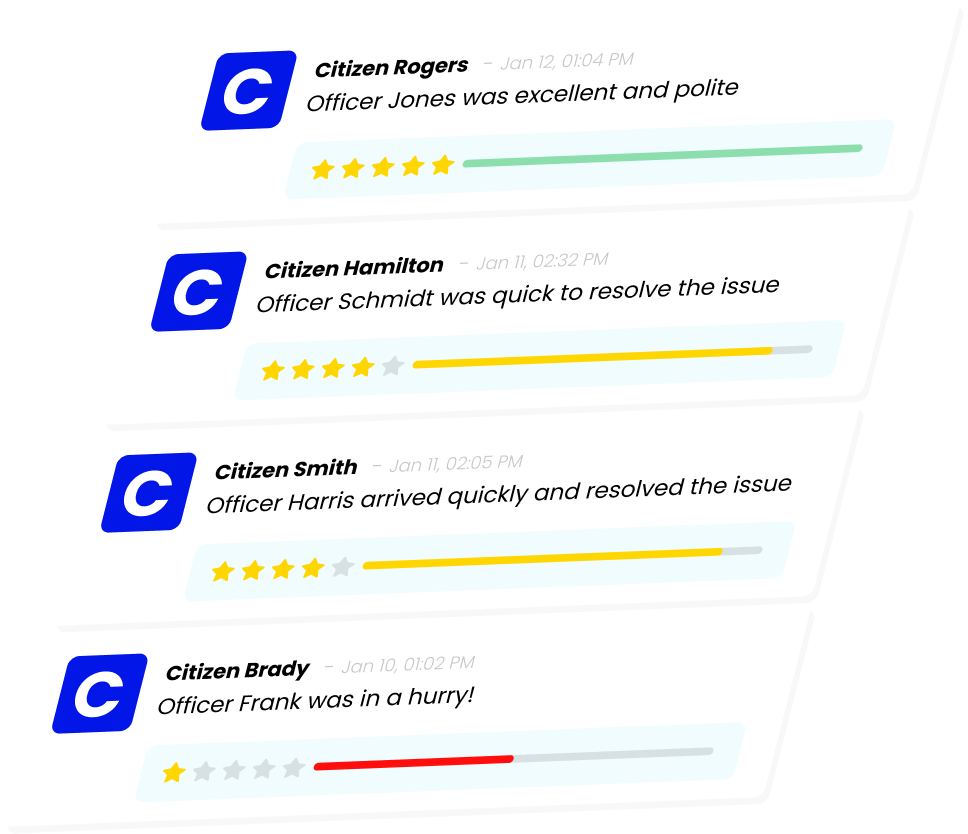
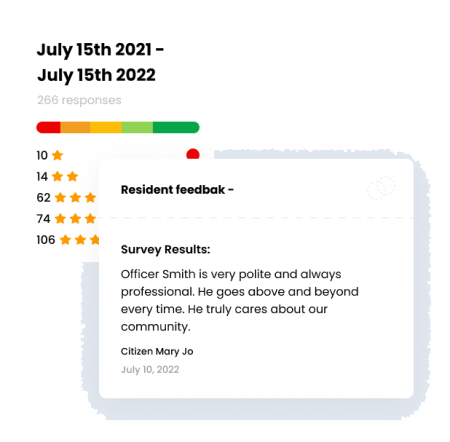
Listen to citizens & officers to build better relationships
- Create engaging surveys instantly.
- No coding required.
- Analyze real time data and deliver measurable impact.
- Gather and analyze citizens feedback after every call.
- Track officer progress.
- Export, share, and collaborate with community and officers in real-time.
Get in-depth Analysis in Real-Time
- Analyze officers feedback, boost confidence, and track progress.
- Get in-depth analysis on neighborhoods that need special attention.
- Transform data into knowledge and deliver impactful results.
- Track officers and view their performances from anywhere at any time.
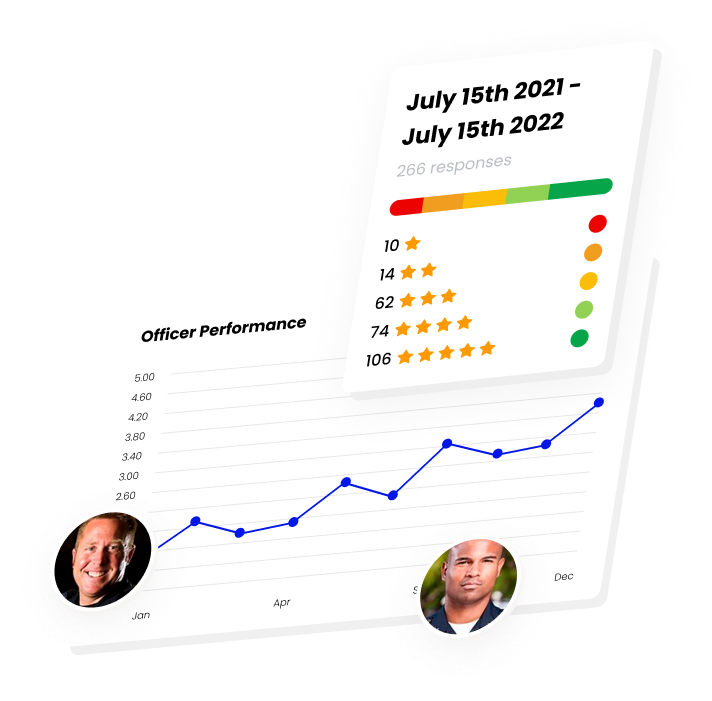
Post-Contact Officer Survey
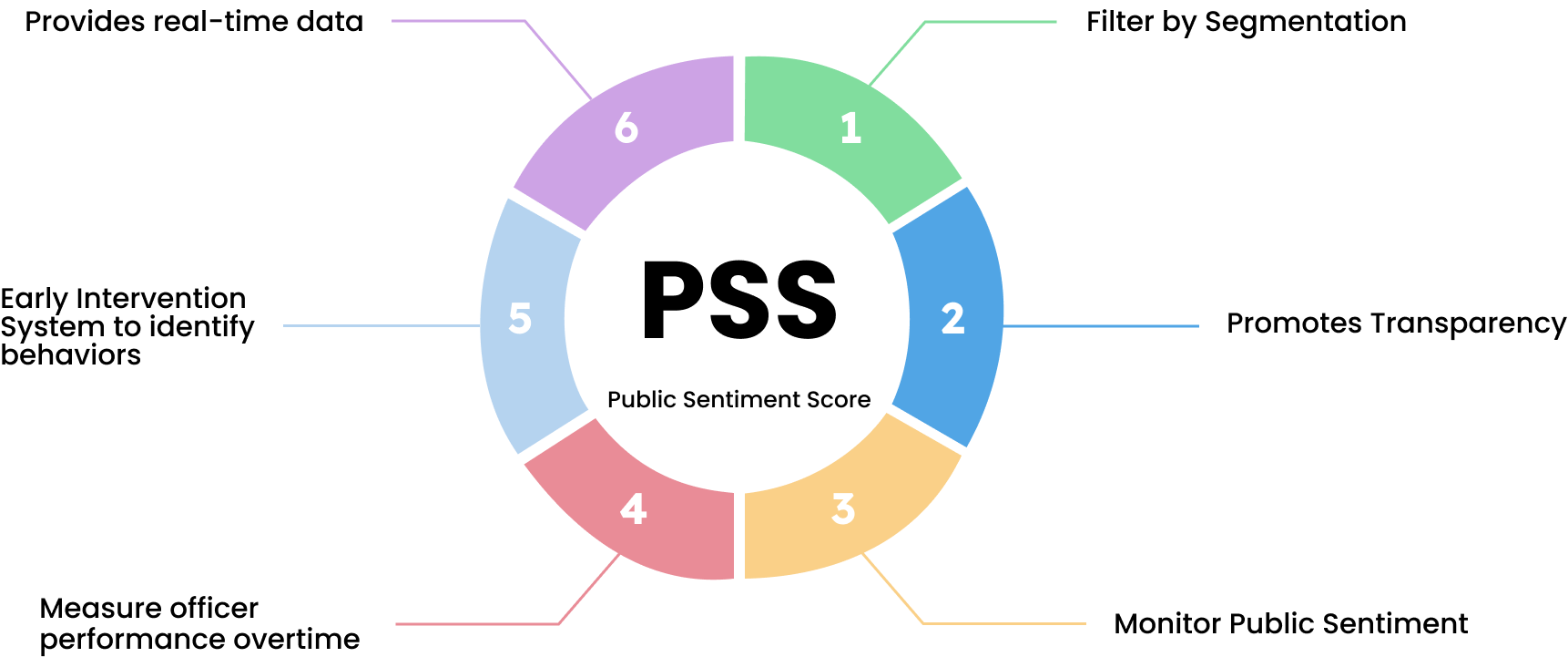
Post-contact officer surveys are conducted after individuals have interacted with police officers. These surveys allow individuals to give feedback on their experiences and can help improve accountability. Some benefits of conducting post-contact surveys include:
- 1. Enhanced transparency: By collecting feedback from individuals who have had interactions with police officers, a department can increase transparency and demonstrate its commitment to accountability.
- 2. Improved relationships with the community: Post-contact surveys can help identify areas where officers could improve their interactions with community members, which can help build stronger relationships between the police and the community.
- 3. Enhanced trust: By collecting and responding to feedback from individuals who have had interactions with police officers, a department can demonstrate its commitment to building trust and confidence with the community.
- 4. Improved officer training: By analyzing the results of post-contact surveys, a department can identify areas where officers may need additional training or guidance and implement changes to enhance their interactions with the community.
- 5. Opportunities for improvement: By collecting and analyzing data from post-contact surveys, organizations can identify opportunities for improving the way they interact with the community and better serve their constituents.
What is a Policing heatmap?
A heatmap is a graphical representation of data that uses a system of color coding to represent different values. It is a powerful way to understand how your community interacts with your officers. Moreover, you can segment surveys based on various metrics and deep dive into areas that may need special attention.
Benefits Of heatmap
Here is how heatmaps within Officer Survey can help you
- It can help you spot issues you couldn't predict.
- It can help you develop a deeper understanding of your community.
- It can help you figure out what works, what doesn't, and why.
- It can help you determine if your changes are working.
Interactive Survey Heatmap
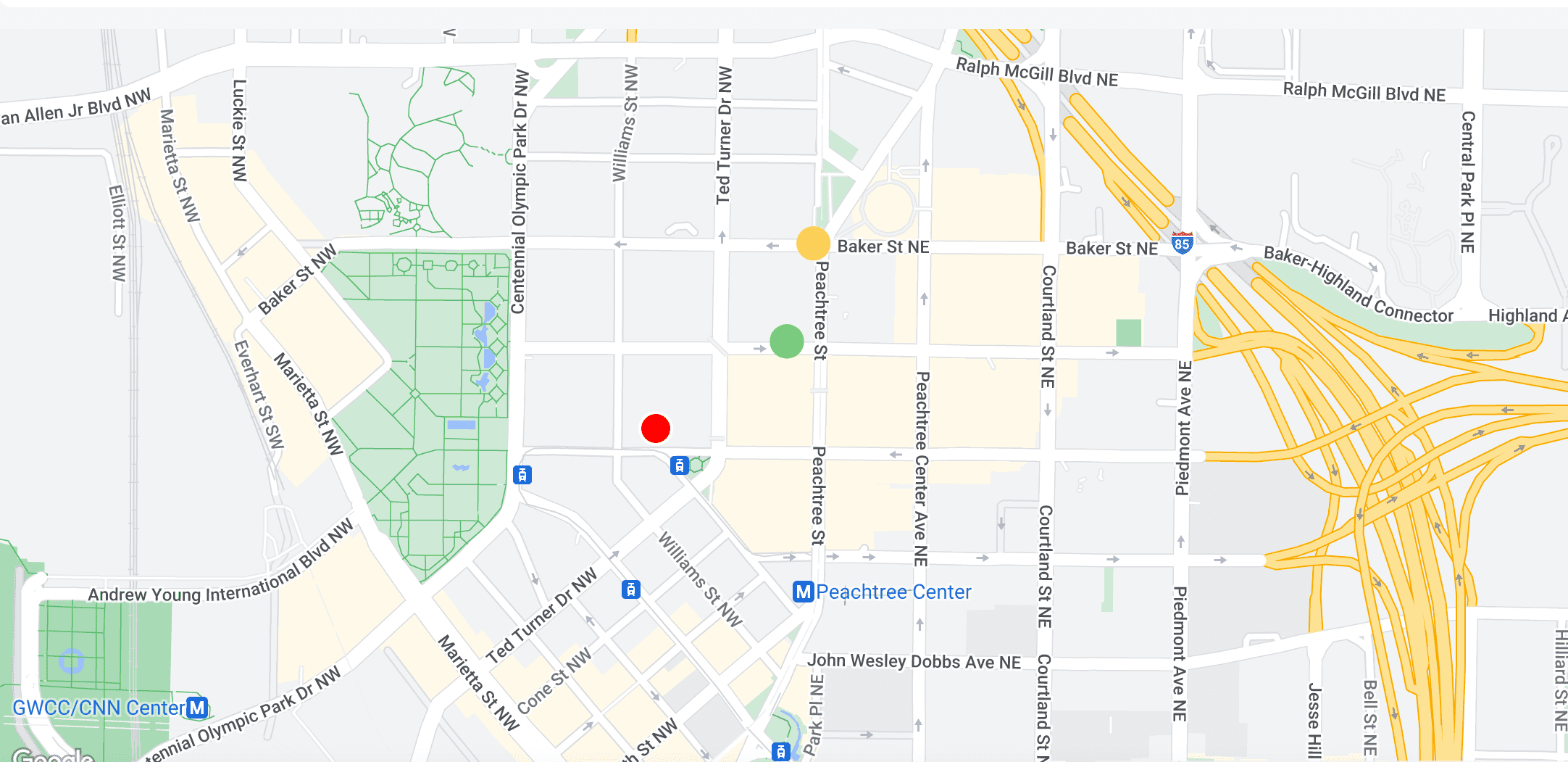
Community Engagement
Connect and engage with community members in a more transparent manner by allowing them to provide feedback about their interaction with the responding officer(s). Building trust and nurturing legitimacy on both sides of the police/citizen divide is the foundational principle underlying the nature of relations between law enforcement agencies and the communities they serve.
Early Intervention
Early intervention is crucial to prevent problems before they escalate. Identifying issues early on and putting the right support in place can greatly improve outcomes. The early intervention tool represents a proactive approach to accountability: a systematic organizational effort to identify problems before they escalate into more serious issues.
Feedback Data Analytics
Receive in-depth feedback simultaneously after every dispatched call. Analyze the responses and deliver measurable results. Every survey response is linked to the responding officer for transparency and accountability.
Precision Policing
A systematic and proactive approach to identifying problematic areas based on citizens’ feedback. Quantify incoming data to reduce crime, hold officers accountable, and increase community trust.
Automation
Increase efficiency and automate the process so you can focus on what matters the most.
Share Files
Easily export and share files with command staff and officers with just click of a button.
Community Engagement
Connect and engage with community members in a more transparent manner by allowing them to provide feedback about their interaction with the responding officer(s). Building trust and nurturing legitimacy on both sides of the police/citizen divide is the foundational principle underlying the nature of relations between law enforcement agencies and the communities they serve.
Early Intervention
Early intervention is crucial to prevent problems before they escalate. Identifying issues early on and putting the right support in place can greatly improve outcomes. The early intervention tool represents a proactive approach to accountability: a systematic organizational effort to identify problems before they escalate into more serious issues.
Feedback Data Analytics
Receive in-depth feedback simultaneously after every dispatched call. Analyze the responses and deliver measurable results. Every survey response is linked to the responding officer for transparency and accountability.
Precision Policing
A systematic and proactive approach to identifying problematic areas based on citizens’ feedback. Quantify incoming data to reduce crime, hold officers accountable, and increase community trust.
Automation
Increase efficiency and automate the process so you can focus on what matters the most.
Share Files
Easily export and share files with command staff and officers with just click of a button.
What Police Chiefs are saying
Chief Brian Peete
Montpelier City Police Department
Chief Jeff C.
Grafton WI Police Department
Chief Brian Peete
Montpelier City Police Department
Chief Jeff C.
Grafton WI Police Department
What Community Members are saying
Officer Smith was great and provided a lot of help during the situation.
Very kind, caring, informative and professional.
Very professional and polite.
Very professional and polite.


